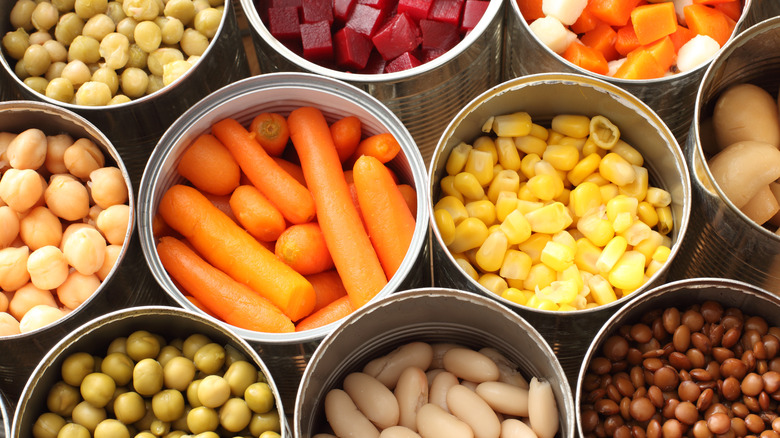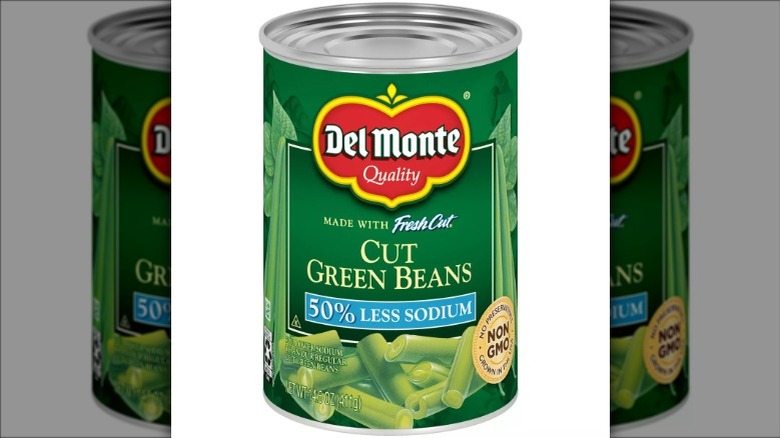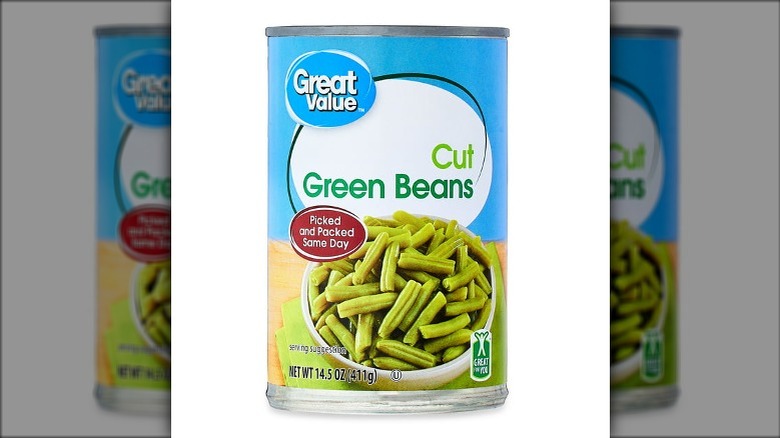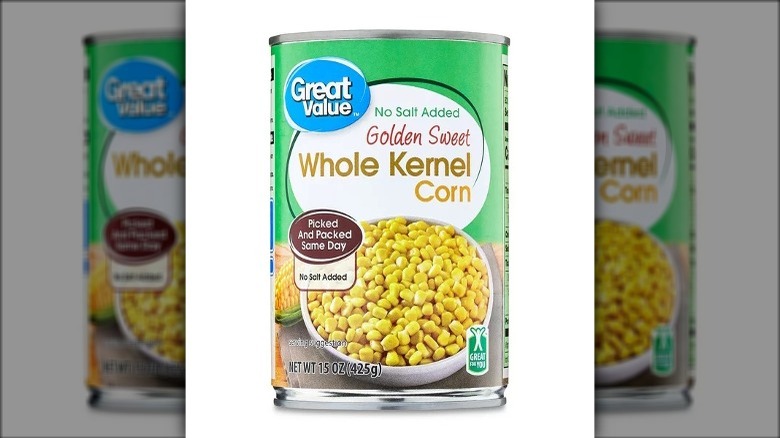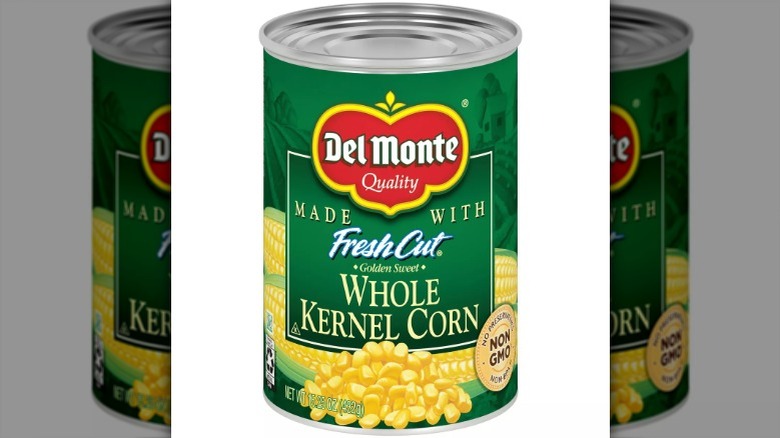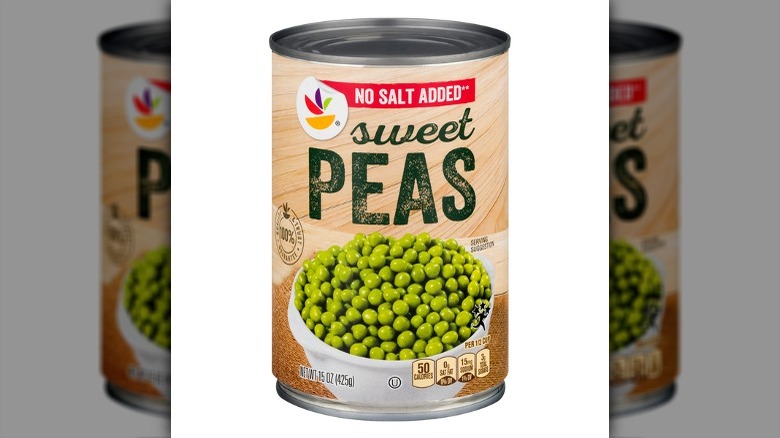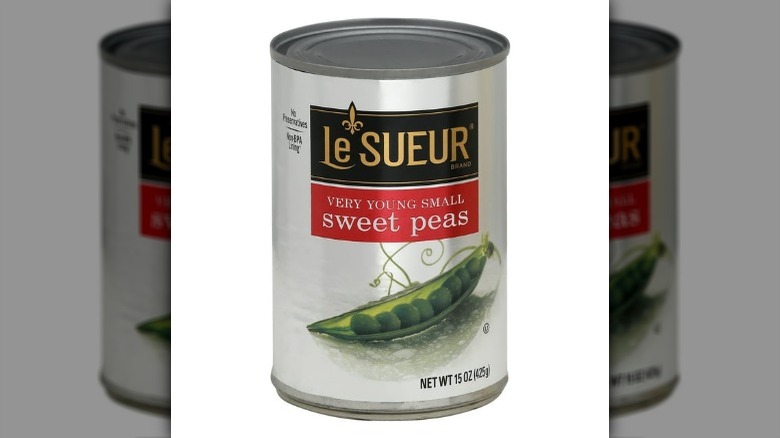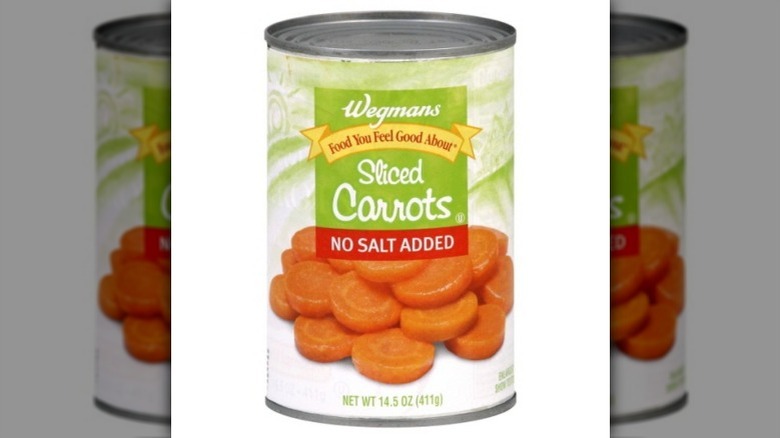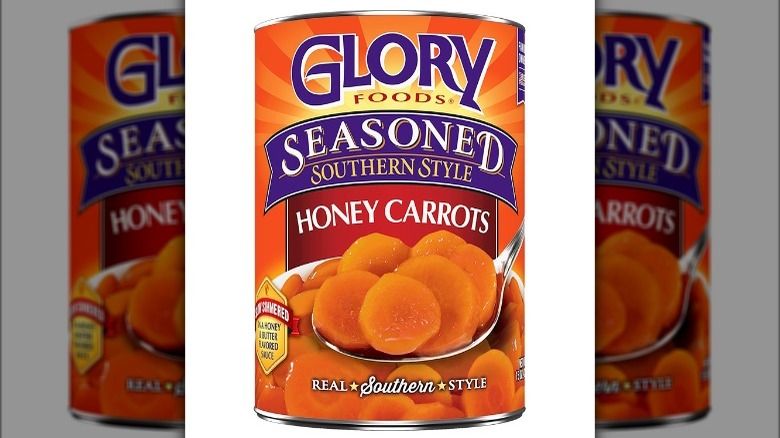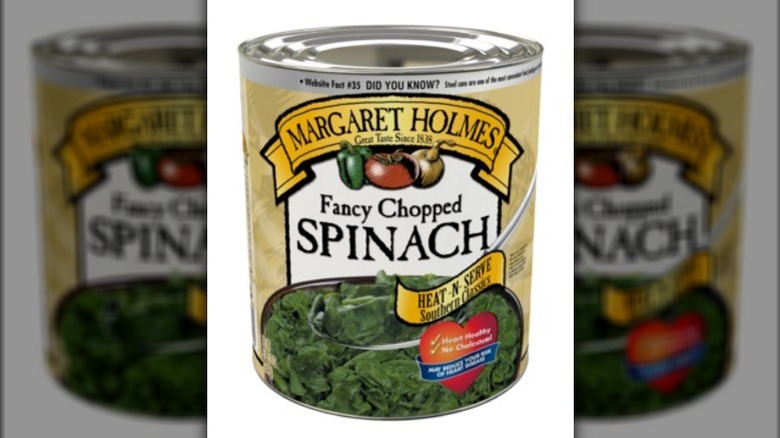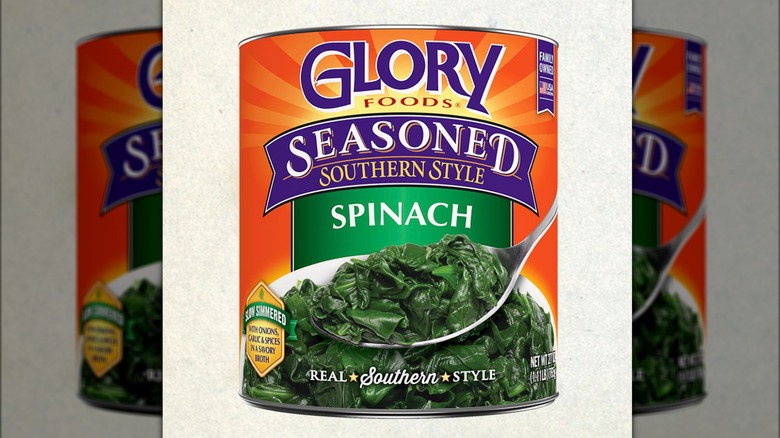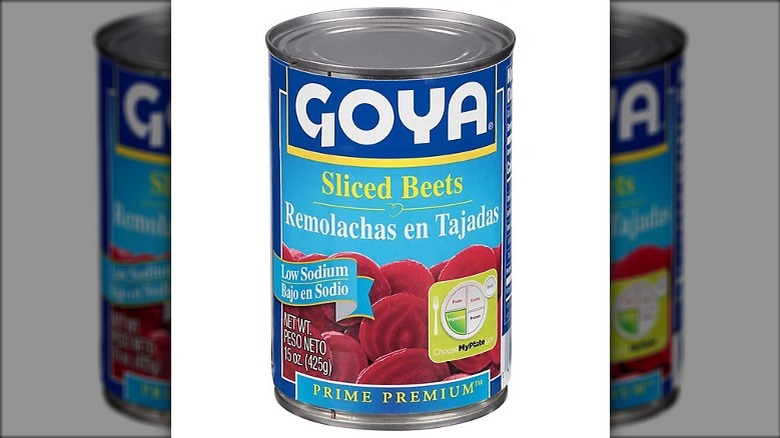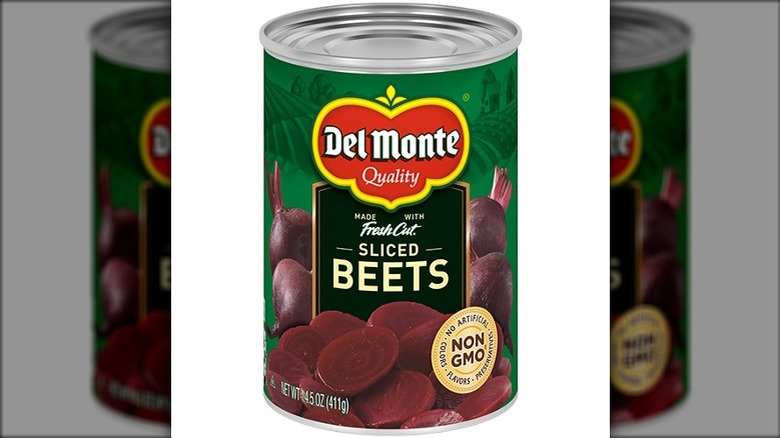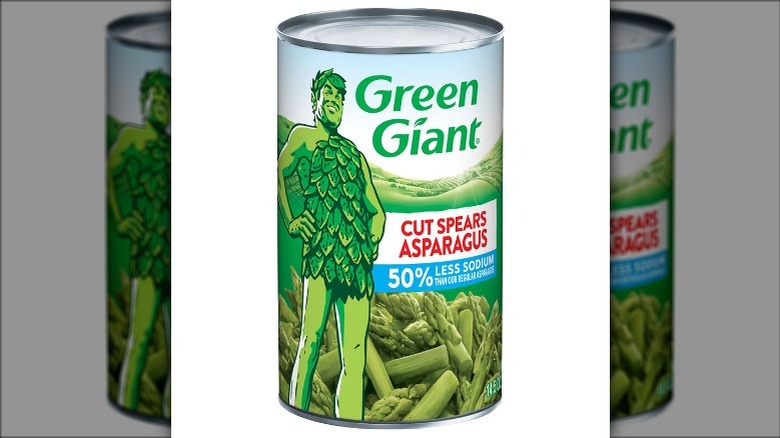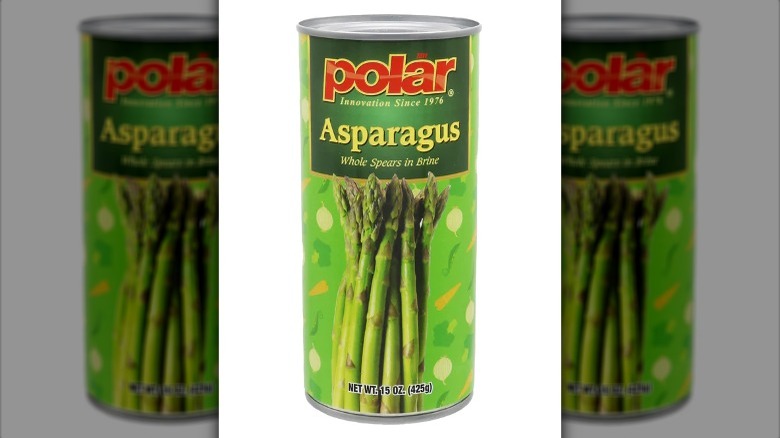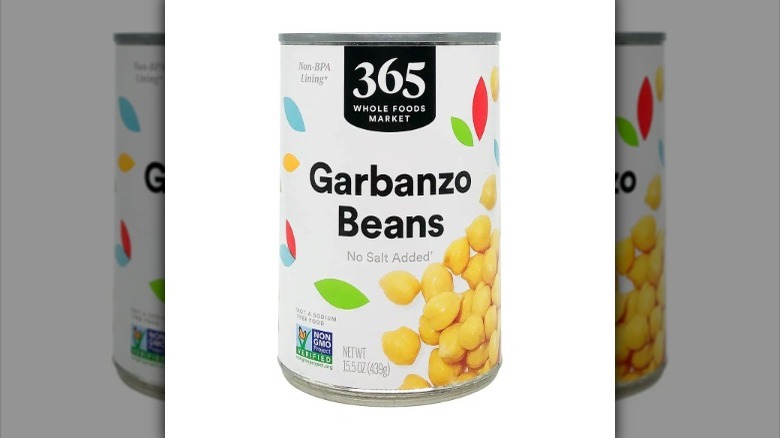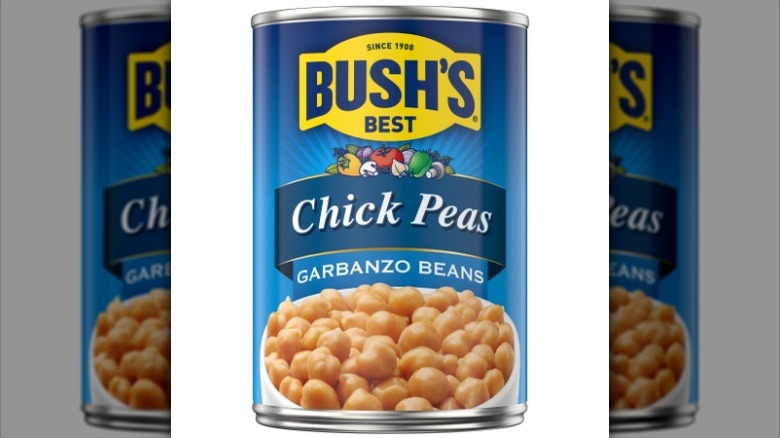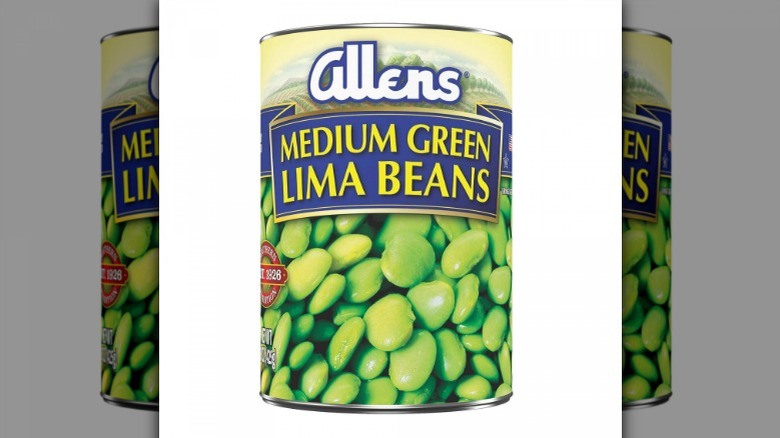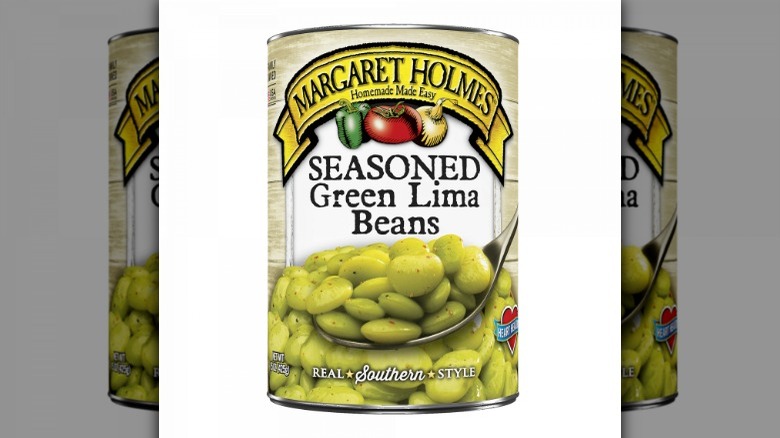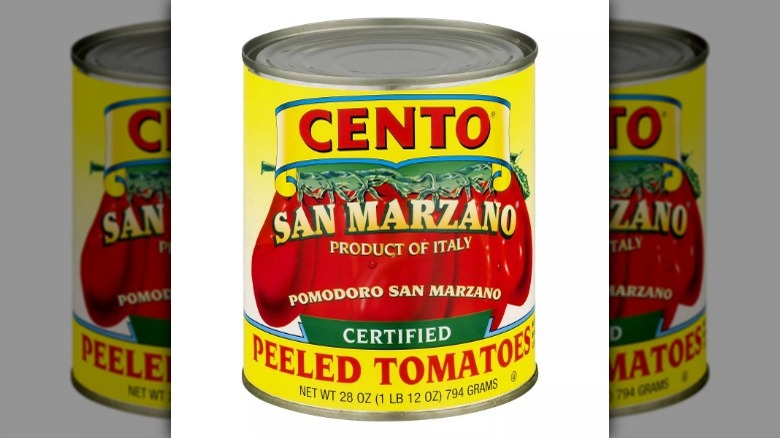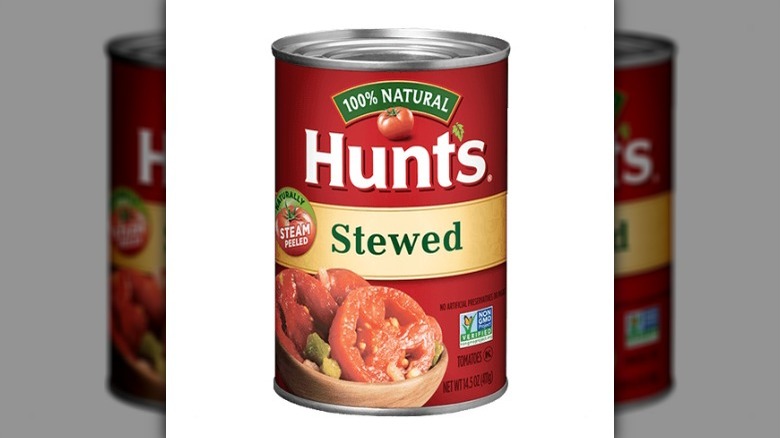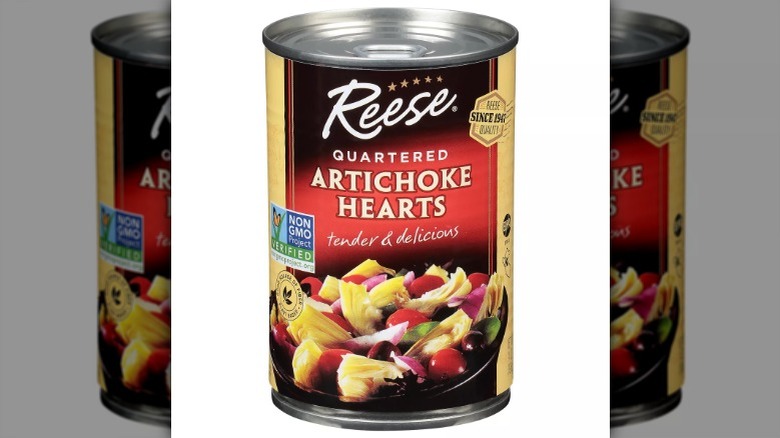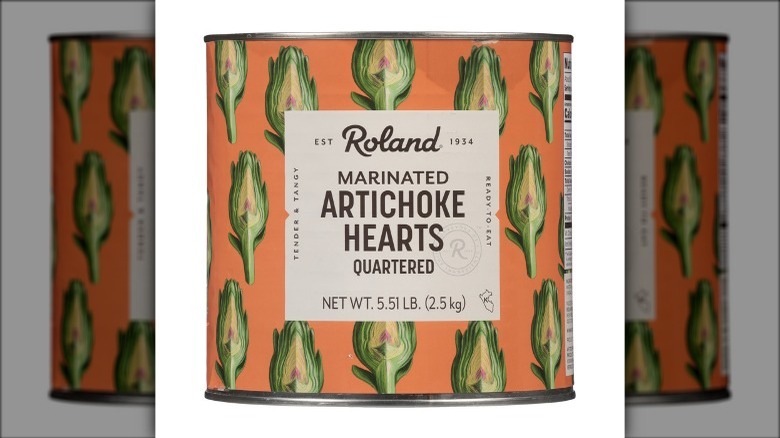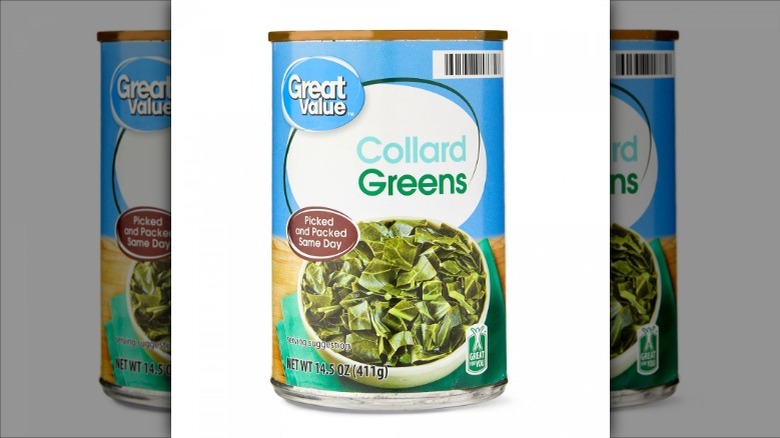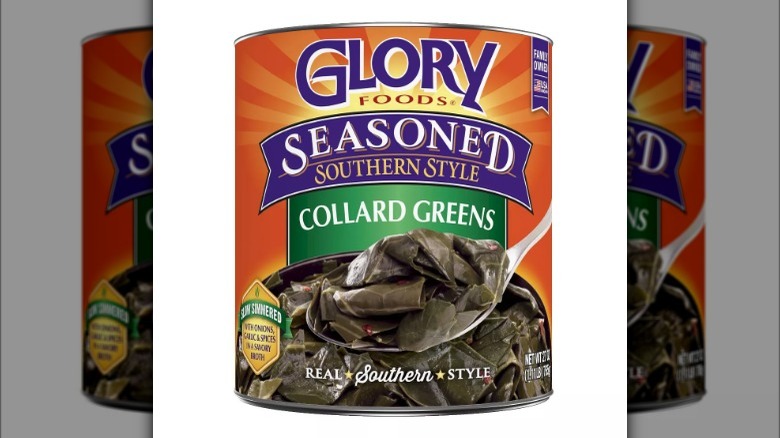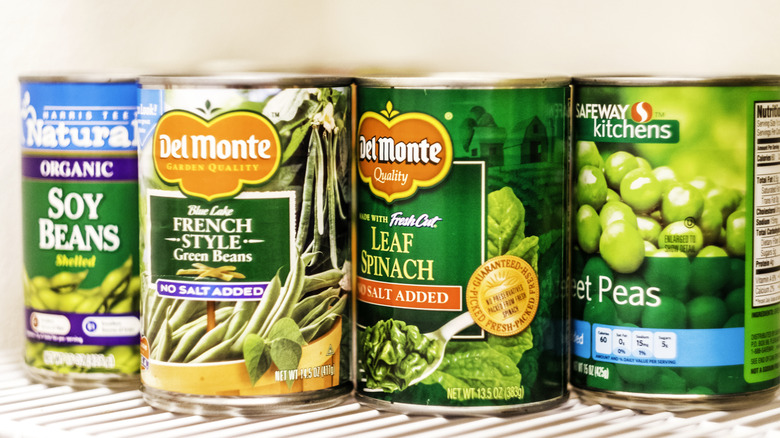12 Canned Vegetables To Buy And 12 To Avoid
We all know that vegetables are a necessary part of a balanced and healthy diet. However, these days, it can be difficult to get access to fresh, high-quality produce. For many Americans, canned vegetables are a sustainable, healthy, and affordable way to incorporate veggies into a personal diet or family meal plan.
There are a number of advantages to canned food, like not having to worry about it going bad if you can't get around to cooking in the next few days. And although canning goods tends to reduce the amount of vitamins, including vitamin C and B, you won't lose out on a majority of the nutrients vegetables provide.
As we've learned, though, not all brands of canned veggies are made equal. For as many nutritious options as the canned aisle holds, there are plenty of others that are overloaded with salt or sugar. When it comes to these 12 popular kinds of canned vegetables, these are the top brands to buy, as well as the ones you should stay away from.
Primarily, when we looked for canned vegetables to avoid, we looked for options that are high in sodium as well as high in added sugar. When finding brands to recommend, we looked for the lowest values in those categories. In situations where no one product had a significant nutritional advantage over the other, we took price into account as well. You can find a full explanation of the methodology used at the end of the article.
Buy: Del Monte Low Sodium Cut Green Beans
The name Del Monte is synonymous with canned vegetables at this point, and often for good reason. In the case of these canned green beans, you are getting an option that is both on the nutritious and affordable side of things. At our nearest Target, one can of these beans cost $1.79.
With 190 milligrams of sodium per serving, Del Monte Low Sodium Cut Green Beans help you keep the salt levels in a reasonable range. If your canned green beans are going into a green bean casserole or being served alongside salty fried food, we recommend you pick up this reduced-sodium variety.
Avoid: Great Value Cut Green Beans
While this item might be a great value as the name suggests, we've learned it's not always best to trust the least expensive brand. These Walmart house-brand green beans sell for as low as 64 cents for a 14.5-ounce can. If picking up a can of these seems like a no brainer, we advise you to look at the nutrition facts on the label.
Compared to other canned varieties, Great Value Green Beans are slightly higher in sodium at 380 milligrams per ½-cup serving. The big red flag here, though, are the 3 grams of sugar. That's more per serving than leading competitors Del Monte and Libby's.
Buy: Great Value No Salt Added Golden Sweet Whole Kernel Corn
By default, canned vegetables will usually have salt added. High sodium levels can be the secret diet destroyer lurking within cans of vegetables, so it's always best to seek out a no-salt option when you can. When it comes to finding a low-sodium canned corn, Great Value No Salt Added Golden Sweet Whole Kernel Corn is one of the best for you.
This canned sweet corn is significantly lower in sodium compared to the average can of corn — with a modest 10 milligrams per serving versus 200 or even 300-plus milligrams with brands like Del Monte. Plus, the listed price of 64 cents for a 15-ounce can is going to be tough for any competing brand to beat.
Avoid: Del Monte Golden Sweet Whole Kernel Corn
Despite the good reputation of Del Monte, we still wouldn't recommend this canned veggie over the competition. Del Monte Golden Sweet Whole Kernel Corn falls into the same trap all the worst canned vegetables do — it's salty and overpriced.
One serving of this brand of canned corn contains 320 milligrams of sodium, which is on the higher end when comparing brands. It also contains 7 grams of sugar, which might seem high. However, if you look at the nutrition facts for this corn, you'll see there's no added sugar, so this isn't the biggest health concern, since natural sugars can actually be quite good for you.
For a much more affordable price of 79 cents a can (compared to $1.79 for Del Monte) you can pick up the Good & Gather brand of canned corn at Target. It's nearly identical in terms of nutritional value.
Buy: Stop & Shop No Salt Added Sweet Peas
There are few ways you can go wrong with canned peas, but if you value simplicity, go with Stop & Shop's in-house brand. This prominent Northeastern grocery chain offers an affordable, low-sodium option for peas in its canned goods aisle. If you don't live near a Stop & Shop, though, you aren't out of luck. Just look for no-salt peas wherever you shop to avoid the added sodium found in many brands of sweet peas.
With only 15 milligrams of sodium and only two ingredients (peas and water), Stop & Shop' s No Salt Added Peas were the healthiest option we found for canned peas. Depending on your grocery store location, these will only cost you between $1 and $1.50 for a 15-ounce can. They also happen to be kosher.
Avoid: Le Sueur Very Young Small Sweet Peas
This brand has a fancy look and price tag, but don't let that trick you into thinking these peas somehow better for you. Nutritionally, these canned peas are no different from many of the other leading brands that cost less. In fact, Le Sueur Very Young Small Sweet Peas have very little to offer for the price. They aren't even organic.
The cheapest you are going to find these is $2 per 15-ounce can, and it only goes up from there. At 4 grams of sugar per serving (1 gram of which is added sugar), we advise you to just steer clear of this canned pea brand.
Buy: Wegmans No Salt Added Sliced Carrots
If you haven't heard of Wegmans, this regional supermarket chain is the East Coast equivalent of a WinCo, Hy-Vee, or Publix. It's here that we found the best, cleanest canned carrots available in our region. In addition to having only 55 milligrams of sodium, these carrots pack 2 grams of fiber, making them especially good for your blood sugar and cholesterol.
Made with just carrots and water, Wegmans' No Salt Added Sliced Carrots are less expensive than fresh carrots, and you basically get the same thing — for only 89 cents a can. If you live near a Wegmans, these canned carrots are a must-buy item next time you visit the chain.
Avoid: Glory Foods Honey Carrots
The name should clue you into the fact that you aren't just getting carrots in a can with this one. This Glory Foods variety of canned carrots also delivers a sugar bomb directly to your body. Containing 11 grams of added sugar per serving of sweetened carrots, Glory Foods' Honey Carrots land at the top of our avoid list.
In terms of ingredients in canned carrots, we are looking for these three only: carrots, water, and salt. These Honey Carrots include not only added fats (i.e. buttermilk, butterfat) and sugars but a ton of extra thickeners and sweeteners like modified food starch and glycerin.
Buy: Margaret Holmes Fancy Chopped Spinach
Despite what the name says, this canned spinach is nothing fancy. Instead, Margaret Holmes Fancy Chopped Spinach is fairly simple, containing only spinach, water, and salt as its three ingredients.
Although it does contain salt, Margaret Holmes Fancy Spinach is still a great low-sodium option, with only 140 milligrams per serving. Spinach is also a great source of potassium, and each serving of Margaret Holmes brand contains over 350 milligrams of the stuff, as well as 2 grams each of protein and fiber. It's important to make potassium a part of your regular diet, as it helps regulate blood pressure and metabolize carbohydrates.
Avoid: Glory Foods Seasoned Spinach
The word "seasoned" is doing a lot of work in Glory Foods Seasoned Spinach. A serving of this canned spinach clocks in at 680 milligrams of sodium. That is some seriously salty spinach.
Glory Foods Seasoned Spinach also includes sugar, which was something no other canned spinach brand we could find had in common with it. This is due to the brown sugar, which is included in addition to a number of additives and flavor enhancers that give us pause. These include caramel coloring and two types of smoke flavor, none of which are necessary ingredients to the making of a good spinach, seasoned or otherwise.
Buy: Goya Low Sodium Sliced Beets
Breaking down a beet yourself can be a chore, so unless you're a farmer, you're going to probably want to opt for the can. If you want the sweet, earthy taste of a beet without all the hard work, we recommend Goya Low Sodium Sliced Beets.
In addition to having only 120 milligrams of sodium per serving, these Goya beets have no added sugar. Meanwhile, they're an excellent source of natural sugars on top of that. Each serving also provides 95 milligrams of potassium, an essential mineral that benefits heart health and can help regulate blood pressure.
Avoid: Del Monte Sliced Beets
While there is very little difference when comparing canned beet brands across the board, one ingredient tipped the scales against Del Monte. Beets can be a great source of fiber, protein, and natural sugars, but it's the inclusion of 2 grams of added sugar per serving of Del Monte Sliced Beets that lands it a spot on the avoid list.
When considering how much natural sugar is already in beets, this pushes the item into questionable territory in terms of health benefits. There is a total of 10 grams of sugar per serving in these beets, which is very much on the high side compared to Goya and others.
Buy: Green Giant 50% Less Sodium Cut Asparagus Spears
Asparagus might not be one of the first things you list when you're playing a game of Scattergories and the category is canned vegetables. Okay, that's a weird hypothetical, but the point is that canned asparagus is a more popular option than you may think. Historically, fresh asparagus has been one of the more costly vegetables to buy at the store. Saving money is one reason why Green Giant 50% Less Sodium Cut Asparagus Spears are an excellent option.
These reduced-sodium asparagus spears contain only 190 milligrams per ½-cup serving. This healthy option also provides 2 grams of protein, plus minerals, with 19 milligrams of calcium and 174 milligrams of potassium.
Avoid: MW Polar Green Asparagus Whole Spears in Brine
When it comes to picking canned vegetables, we're looking to get all the health benefits of the fresh veggies. MW Polar Green Asparagus Whole Spears in Brine unfortunately lack some of the nutrients we are after.
According to the packaging, a can contains less than 1 milligram of potassium, calcium, and vitamin D per 1-cup serving. What these brined asparagus spears lack in nutrients, they make up for with 4 grams of sugar and 512 milligrams of sodium per serving. These levels are likely due to the brine the spears are soaked in, since a brine typically consists of salt, sugar, and water.
Buy: 365 by Whole Foods Market Unsalted Garbanzo Beans
Garbanzo beans, commonly known as chickpeas, are a tasty and filling way to work protein, fiber, and healthy carbs into your diet. You can buy them fresh and dry, but canned pre-cooked chickpeas are great in a pinch since you don't have to endure an overnight soaking process to use them. Since these beans are so affordable, we recommend you opt for the variety sold at Whole Foods.
For under $2 for a 15.5-ounce can, Whole Foods' Unsalted Garbanzo Beans are one of the best deals at the notoriously expensive grocery store. These are low in fat and sodium, with 2 grams and 10 milligrams per serving, respectively. You'll also get 21% of your daily recommended amount of dietary fiber from these chickpeas, which contain 6 grams per serving. Now, those are the carbs we are looking for.
Avoid: Bush's Garbanzo Beans
If you're a fan of baked beans, you're probably familiar with Bush's. The brand doesn't stop at one type of bean, though; they sell many others, including garbanzo beans. While healthier than its baked beans, Bush's chickpeas are still not the best for you.
At 480 milligrams of sodium per serving, ½ cup of Bush's Garbanzo Beans will put you over 20% of your daily recommended salt intake. We also found this brand has less fiber and more sugar than competitors. If you're going to opt for chickpeas from Bush's, we recommend you at least try the low-sodium variety.
Buy: Allens Medium Green Lima Beans
Lima beans might not be the most popular side dish anymore, but these little green guys can be an excellent source of protein, fiber, and iron. If you're interested in giving them a try, or are already a lima bean appreciator, we recommend you pick Allens.
A serving of Allens Medium Green Lima Beans provides 6 grams of protein and 5 grams of fiber, the latter of which is a solid 18% of your daily recommended intake. You are also getting 8% of your recommended dosage of iron and potassium. Due to its role in helping your body produce hemoglobin, getting a proper amount of iron in your diet is paramount to living a healthy life.
As an added bonus, these lima beans are low in sodium, at only 140 milligrams per serving.
Avoid: Margaret Holmes Seasoned Green Lima Beans
Now, repeat after us: Avoid seasoned canned vegetables. Case in point are the Margaret Holmes Seasoned Green Lima Beans, an unfortunately salty product from a brand that usually gets it right.
These beans contain a shocking 610 milligrams of sodium per serving, a whopping 27% of the FDA-recommended daily amount. There is also a minuscule amount of fat content in these beans that isn't found in other canned lima beans. It may only be 0.5 grams per serving, but that number's greater than zero, which is what you'll find in Allen's or Del Monte's lima beans.
Buy: Cento San Marzano Peeled Tomatoes
When it comes to canned tomatoes, we are personally acquainted with the benefits of a high-quality product. Whether you're making sauces or stews, it's crucial to get a can of imported San Marzano tomatoes. When it comes to these succulent tomatoes from the Campania region of Italy, Cento is a top brand that is delicious and good for you.
We advise going with the Cento San Marzano Peeled Tomatoes, since whole tomatoes are the most versatile in the kitchen. They also manage to only have 20 milligrams of sodium per serving, as well as 10% of your daily recommend dosages of Vitamins A and C.
Avoid: Hunt's Stewed tomatoes
In terms of tomato brands, Hunt's falls on the opposite end of the spectrum from Cento. Instead of being imported and versatile, Hunt's Stewed Tomatoes are peeled, sliced, and seasoned before they even hit the can. With ingredients including dried onions, celery, and bell peppers, these stewed tomatoes are full of flavor that we just don't need.
On top of the seasonings, each serving of Hunt's Stewed Tomatoes contains 3 grams of added sugars. As we've discussed, sugar isn't necessarily bad for you (the Cento tomatoes above contain 4 grams), but if you are watching your blood sugar, it's best to avoid products that add extra sugar to something that doesn't need it — like these canned vegetables.
Buy: Reese Quartered Artichoke Hearts
Unless they live in California, fresh artichokes are probably rare for most Americans to get their hands on. Thankfully, canned artichoke hearts exist and are delicious and nutritious — especially Reese Quartered Artichoke Hearts.
These artichoke hearts are typically sold for between $2 and $4 for a 14-ounce can (we found them for $3.19 at Target), and they are worth every penny. While the sodium levels are around average for artichoke hearts at 380 milligrams per serving, the 4 grams of fiber and 3 grams of protein here are nothing to scoff at. Each of those is about twice as much per serving as leading brand Del Monte.
Avoid: Roland Marinated Quartered Artichoke Hearts
We will give these artichoke hearts one thing. At only 90 milligrams per serving, Roland's Marinated Quartered Artichoke Hearts are very low on sodium. However, this brand of canned artichoke lacks many of the health benefits that brands like Reese provide.
For starters, these canned artichoke hearts do not have any protein. This is especially disappointing, considering that artichokes have higher-than-average protein content when compared to other vegetables. Each serving also provides less than 1 gram of fiber. Compared to Reese, these Roland artichoke hearts fail to provide the same amount of nutrients across the board, with a complete lack of Vitamin C being the most egregious offense.
Buy: Great Value Collard Greens
The label on these Great Value Canned Collard Greens promises veggies that were picked and packaged on the same day. While we can't confirm that claim, we can tell you these collard greens are both healthy and inexpensive.
A majority of the collard greens you find in cans are already heavily seasoned, which makes these an oddity among canned veggies. Walmart's Great Value Collard Greens will provide you with healthy doses of calcium, fiber, and potassium for a mere 25 calories per serving. Containing only collard greens, salt, and water, the ingredient list is exactly as long as it needs to be.
Avoid: Glory Foods Seasoned Collard Greens
We don't mean to keep hating on Glory Foods. Pre-seasoned canned vegetables can certainly have a place in the busy home cook's life, but if you're looking after yourself or your family's health, we still recommend you steer clear of them, especially when it comes to Glory Foods Seasoned Collard Greens.
These canned collard greens will cost you a tremendous 720 milligrams of sodium per serving, which is nearly a third of what you should be consuming in a day. The culprit might be the handful of added pork-based ingredients like bacon fat, pork broth, and country ham broth. Given the inclusion of these, this canned vegetable is ironically not vegetarian, which is a major red flag in our book.
Methodology
The methodology for this article is based on two criteria. Primarily, we wanted to focus on health and nutrition by singling out brands that had nutritional advantages or disadvantages compared to the competition. Secondly, we wanted to get you the best bang for your buck.
Since American diets are typically high in sodium and sugar, we decided to focus on these values. The FDA-recommended daily intake of sodium sits at 2,300 milligrams, yet the average American consumes closer to 3,400. For sugar, your daily intake should be between 25 and 36 grams total. When it comes to sugar, we put emphasis on the inclusion of added sugars as a major negative, since these are of no nutritional value.
In places where we couldn't find significant nutritional advantages to one product over another, price played a factor. Prices and price ranges were based on what was listed online at various retailers and grocery chains. Since we haven't tried each of these products personally, these felt like the fairest criteria on which to judge each of these canned vegetables. When personal experience did come into play, we made a note of it.
